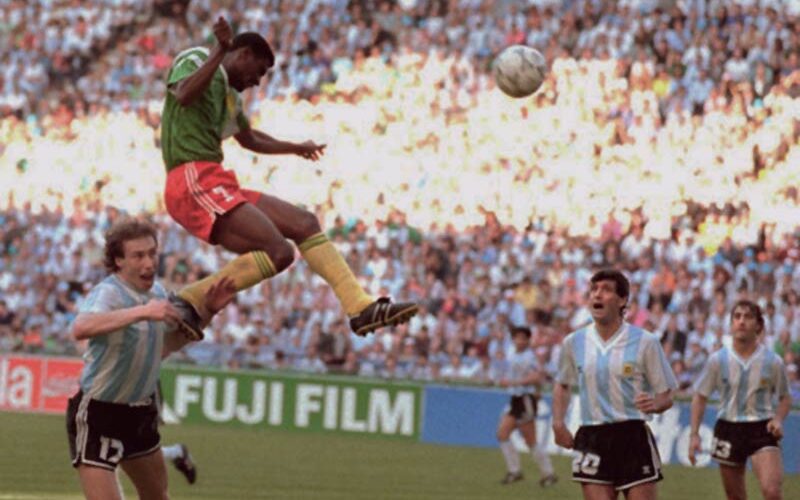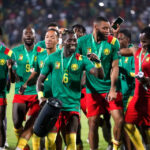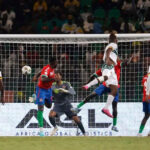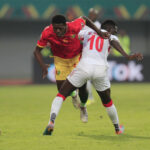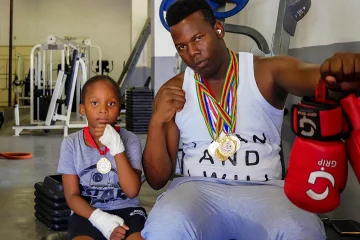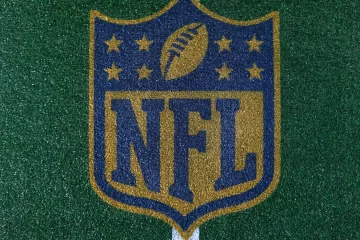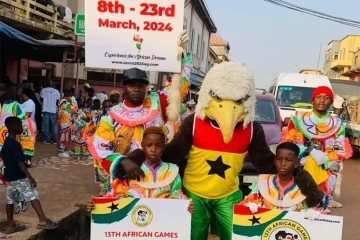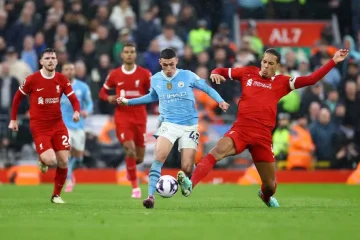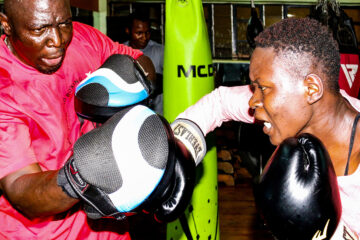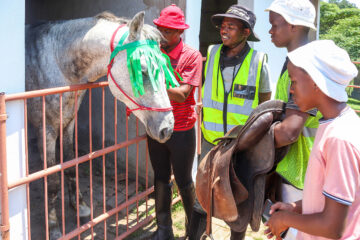DANIEL EKONDO
Thirty years ago, Cameroon announced themselves in style in the international arena with a storming performance in the 1990 Fifa World Cup. Their display is still regarded as one of the best by an African team in the showpiece.
Cameroon were not tipped to do much in Italy given that they had been eliminated by just a goal in the group stage of the 1982 finals in Spain and had missed the previous edition in Mexico. While they were nobodies in the global arena, the Indomitable Lions ruled the African continent.
Cameroon had won their first Africa Cup of Nations (Afcon) in 1984, lost in the final two years later and were once again African champions in 1988. During this period, Roger Milla, a supremely gifted attacker, was in his finest form, with Thomas N’kono and Joseph-Antoine Bell exceptional in goal – in one of the fiercest goalkeeping rivalries on the continent. They were a force to reckon with in Africa and needed a different test to show what they could offer.
In a group that also had Romania and Russia (the Soviet Union at that time), Cameroon opened their campaign against the reigning world champions Argentina. It was a huge mismatch, Diego Maradona’s all-conquering Argentina against an African side that was still making its baby steps in the World Cup.
The Indomitable Lions frustrated Argentina, while Thomas N’kono was brilliant in goal at San Siro Stadium – producing a performance that would leave a mark so big on a certain Gianluigi Buffon that it convinced him to be a goalkeeper and to name his son after the Cameroonian.
“If N’kono did not have the possibility of stopping the ball, we would’ve lost 2…3…to 4-0. Thomas N’kono gave confidence to the team,” François Omam-Biyik, who scored the winning goal, told New Frame.
Having surprisingly been picked as the first-choice keeper instead of Bell, N’kono himself did not believe his teammates were going to overpower Argentina. “I thought it was a very bad team and we were going to lose,” he told Jonathan Wilson in The Outsider, a book on goalkeeping.
N’Kono’s pessimism was warranted because Cameroon, who were the defending champions of the Afcon, crashed out in the group stage of the 1990 edition in Algeria. And their manager Valery Nepomnyashchy, whose only coaching spell at that time was an unknown Turkmenistani club in Russia’s third division, could not speak either English or French. His orders to the players were translated by a man thought to be a worker in Cameroon’s embassy in Russia.
When Omam-Biyik was asked how he scored the towering header against Argentina keeper Nery Alberto Pumpido, the 54-year-old told New Frame: “I jumped very high in my playing career but that day God said it was my day because the jump was impressive. But the keeper did not do a good job to save the ball.”
Road to the quarterfinals and Milla’s influence
Despite only coming on just before the hour mark, Milla changed the rhythm of Cameroon’s second group game against Romania. He scored twice as they beat the Romanians 2-1. Cameroon were trounced 4-0 by the Soviet Union in their third game but qualified for the round of 16 with two wins in that group – the first African side to reach the knockout stage.
Milla proved he was a true super-sub by scoring Cameroon’s two goals in a 2-1 victory over Colombia in the knockout stage after coming on in the second half of the match. His quality and pace were unprecedented at 38.
Milla had retired from international football after the 1988 Afcon, but was persuaded to come back to the team by President Paul Biya a few weeks before the World Cup. Because he had left Montpellier at the end of the 1988/89 season and moved to Reunion, a small French island in the Indian Ocean where he played amateur football, many of his team mates believed he was not going to be fit for the finals. It was a subject of controversy but Milla’s depth survived it.
Cameroon vs England: the historic quarterfinal
According to Omam-Biyik, the win against Argentina and Colombia made them believe “it was Africa’s World Cup”.
England, who had not seen any Cameroonian in their local championships, underestimated the Indomitable Lions. Goals from Emmanuel Kunde and Eugene Ekeke nearly jeopardised England manager Bobby Robson’s eight-year stint with The Three Lions, yet they pulled it back eight minutes from the end of the game to win 3-2.
Crumbling on the brink of a semifinal berth, Omam-Biyik believes that “maybe if we had experience we would have gone to the semifinals. We had all – the passing, dribbling and possession.”
Twelve of the 22 players Cameroon took to the World Cup played at home. After the tournament, the bulk of them got contracts overseas. “Though we lost to England, the world started believing in us, knowing Africa could challenge big teams,” Bell told New Frame.
Cameroon’s class of 1990 inspired many generations in the continent, including those who followed in their footsteps. The continent even got one more slot in the World Cup, going from two representatives to three.
But sadly, Cameroonian football didn’t build on this performance when it comes to appearing in the World Cup, despite the stars who followed after the class of 1990.
Quizzed on why the Indomitable Lions didn’t grow after 1990, Bell, who is an outspoken critic of football management in Cameroon, laughed before saying, “What happened to us [in 1990], we did not prepare for it and we did not even know how we reached there.” According to the former Marseille and Saint-Etienne shot-stopper, Cameroon lacks a holistic preparation of its football.
Why Cameroon football has struggled
The country has participated in five World Cups since the 1990 tournament. The Indomitable Lions crashed out of the group stage all five times.
“How many coaches have you changed? How strong is your league? How organised is your football? When all of these are put together, Cameroon cannot perform well in the World Cup,” said Bell.
Weighing in on the deep-rooted problems, veteran sports journalist Kevin Njomo, who has over 40 years of experience in reporting the country’s football, believes corruption is rocking Cameroon’s various national teams.
“Players did not pay to play in the national team in the yesteryear. Players needed to just perform with their local clubs! A case is Stephen Tataw, he left an amateur club straight to the national team,” he said.
“Clubs back in the day were owned by communities and state institutions under which players enjoyed better playing conditions. The players had jobs and that made them mature before leaving for abroad. But now you hardly find a talent that can stay in the country for up to three seasons because most clubs are owned by individuals who run them as their private businesses.”
Njomo, who was part of the Fifa-led normalisation committee following Cameroon’s ban from international football, continued, “The greatest problem is the level of our league and the greed of people who run teams in Cameroon.” – NEW FRAME.

